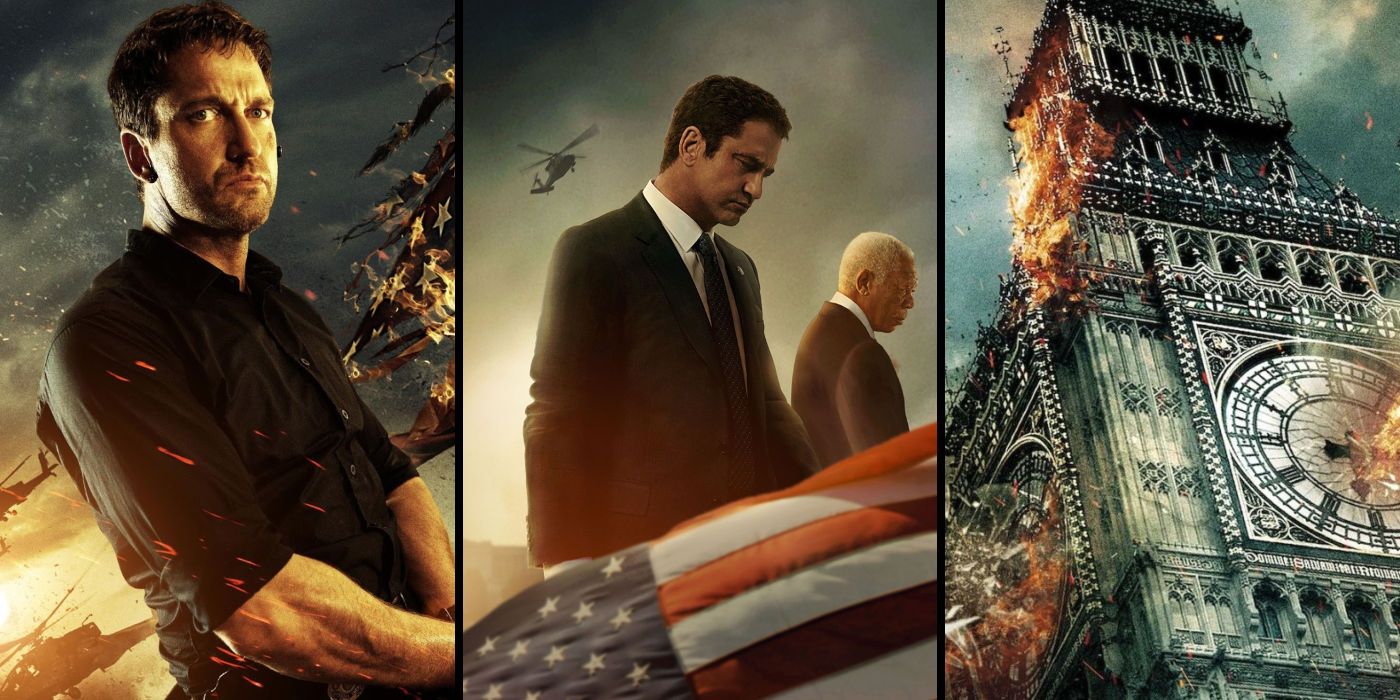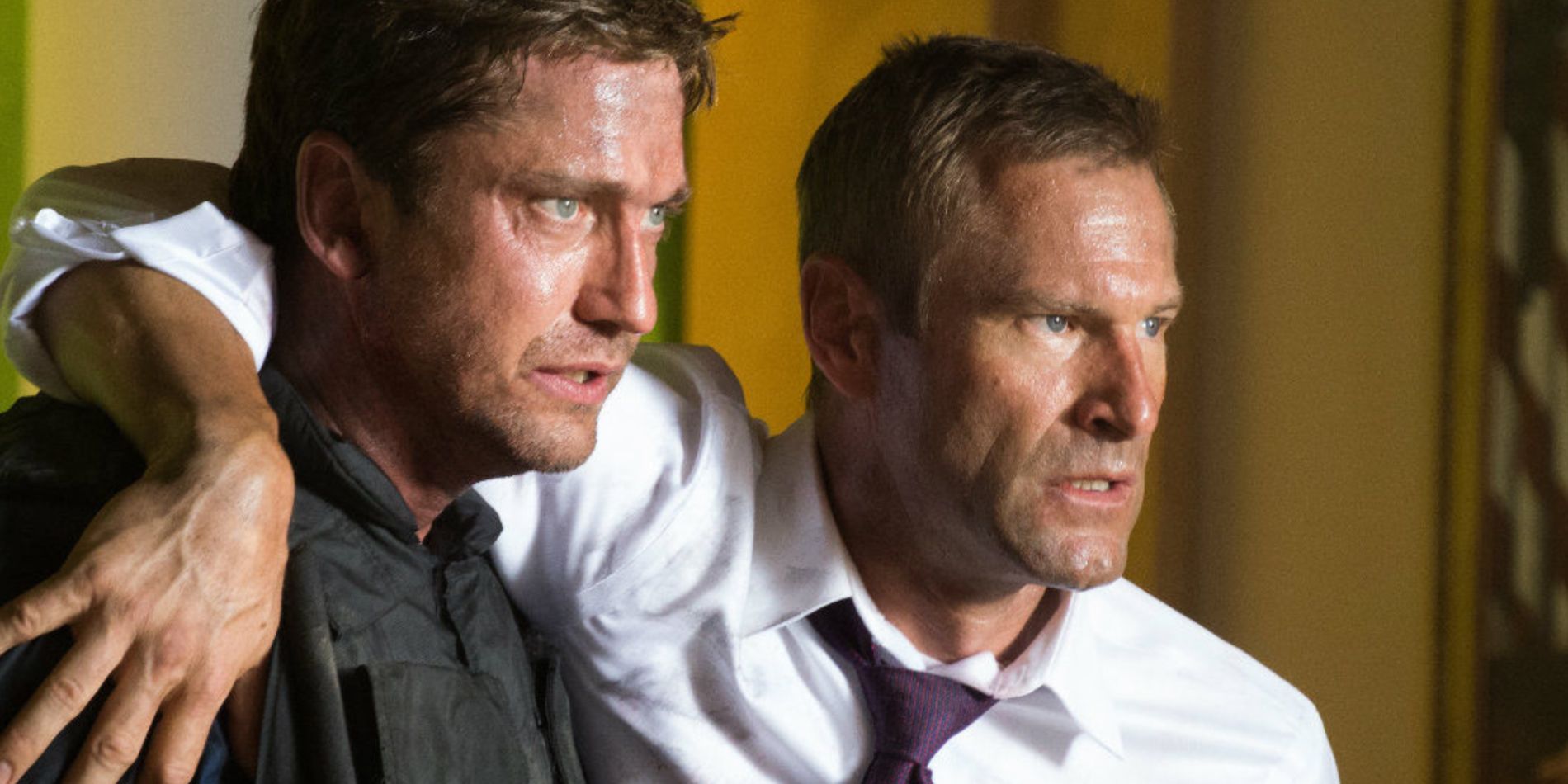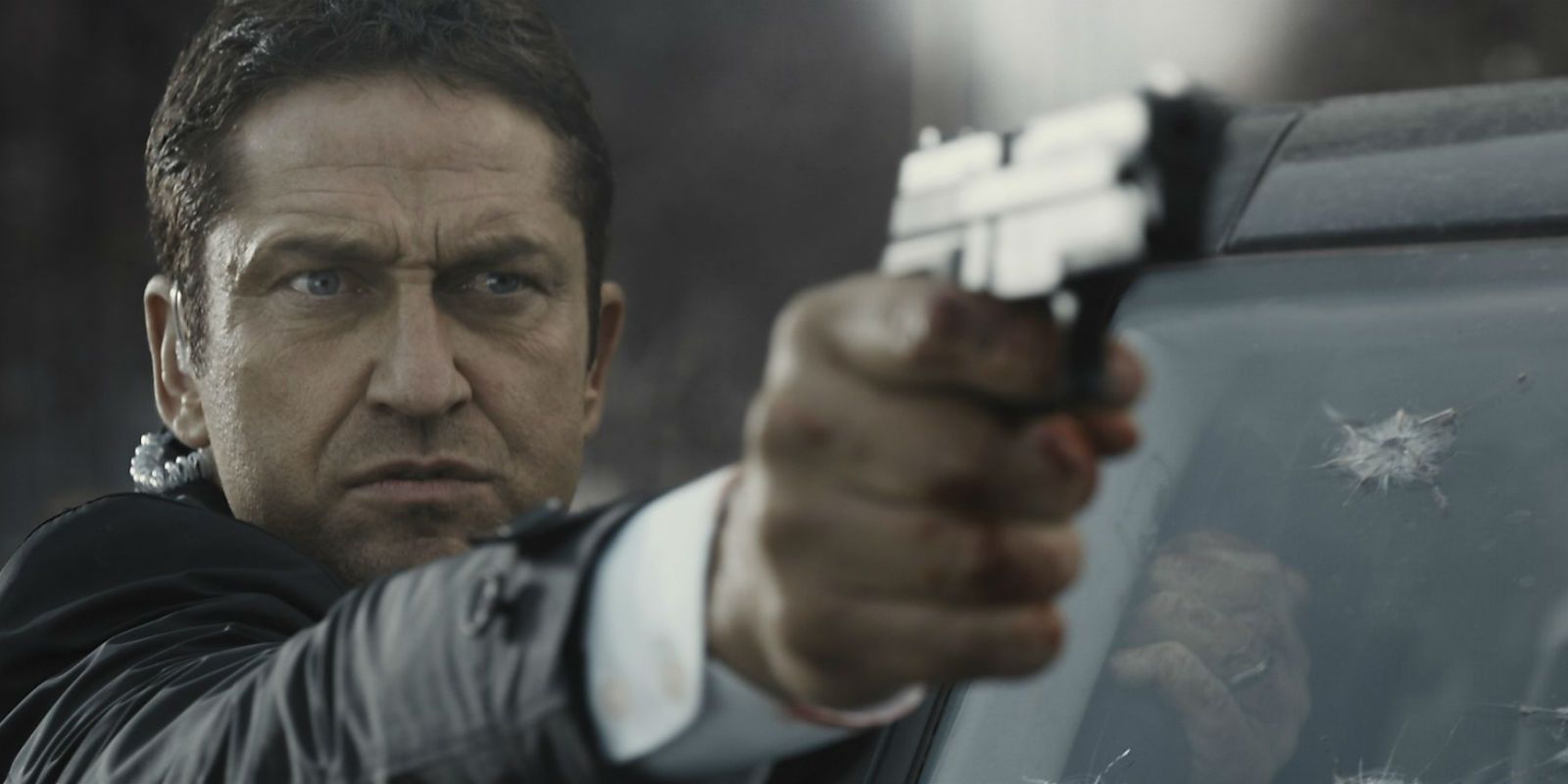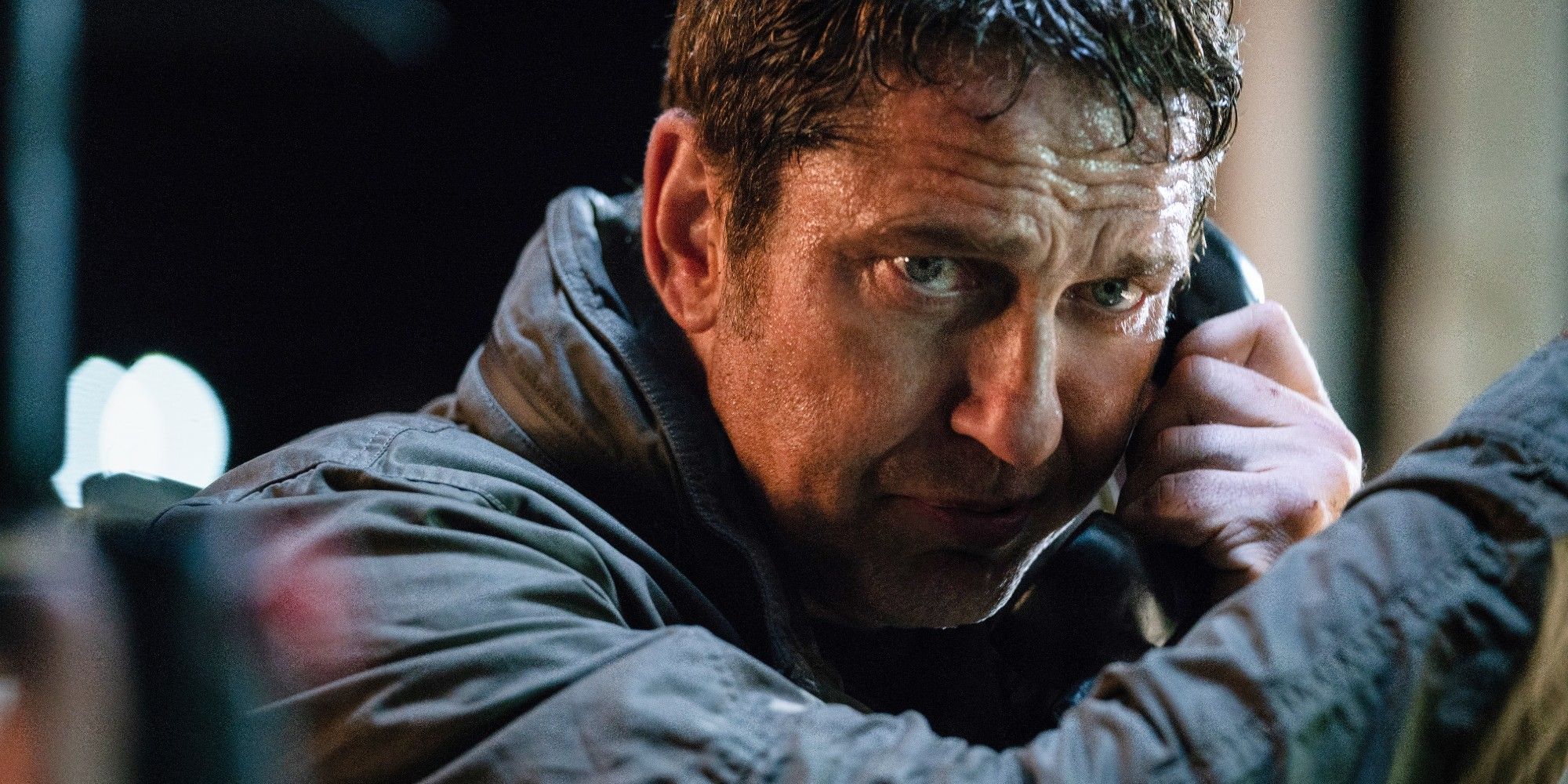There are three movies in Gerard Butler's Has Fallen trilogy, but which is the best? Since the 2013 debut of Olympus Has Fallen, the Has Fallen film trilogy has carved out a niche for itself as a satisfying mix of old-school macho action and light political intrigue. They're the type of R-rated action flicks that have become increasingly infrequent in today's landscape of PG-13 superhero blockbusters that have come to dominate the multiplex in recent years.
Each of the three Has Fallen movies has their own flavor, since every entry in the trilogy hails from a different director who puts their own spin on the material and takes Butler's character, Mike Banning, into new creative places. The 2013 original, Olympus Has Fallen, was helmed by Training Day and The Equalizer director Antoine Fuqua, while the first sequel, London Has Fallen, was directed by Babak Najafi. Finally, the latest entry in the series, Angel Has Fallen, saw Ric Roman Waugh (Snitch, Shot-Caller) take the reins.
While Angel Has Fallen marks the end of the trilogy, it also signals a rebirth for the franchise, which is set to expand via international spinoff TV series that will crossover with a future sequel trilogy. It's an ambitious goal, and if it works out, there will be many more Has Fallen adventures to come. So, more things will fall. The future looks bright for the series, but for now, let's look back at the current trilogy. Here are all three Has Fallen movies, ranked from worst to best.
3. Olympus Has Fallen
At the outset, the Has Fallen series had yet to define itself, so its inaugural outing is rife with conflicting tones and a pervasive indecisiveness as to what type of movie it wants to be. The strongest element in Olympus Has Fallen is Butler himself, who shines as Mike Banning, a Secret Service agent haunted by his inability to save the First Lady (Ashley Judd) during an automobile accident. The first act of Olympus Has Fallen plays out like a harrowing disaster movie, with North Korean terrorists launching an audacious attack on Washington D.C., murdering countless innocents from a heavily-armed gunship. The film seems to enjoy exploiting the violence in this sequence a bit more than it should, which is unusual for director Antoine Fuqua, who normally does a far better job handling violent subject matter. It's also worth noting that the CGI during this sequence is somewhat half-baked and cartoonish, which doesn't help matters.
Once the initial attack ends, Olympus Has Fallen settles into a more Die Hard-esque formula, with the White House standing in for Nakatomi Plaza. While this works in the film's favor, the contrast between the grim circumstances of the hostages and the John McClane-styled action antics of Banning don't quite coalesce in a satisfying way. Olympus Has Fallen doesn't know if it wants to be a hard-edged terrorist thriller or a righteously macho action movie, and it ultimately fails at both. The ship is somewhat righted by the end, when Banning steps up to the plate with satisfying one-liners and a near-comical proclivity towards confirming his kills with a gory headshot, but it's too little, too late. While there are some shining moments, especially in the back half of the film, Olympus Has Fallen is best remembered as a shaky first step towards better things to come.
2. London Has Fallen
Three years later, Gerard Butler returned in London Has Fallen, which moves the action overseas and finds the franchise settle into a more comfortable rhythm. While still suitably grim with high stakes and a violent series of terrorist attacks kicking off the action, London Has Fallen nonetheless carries a slightly more light-footed, triumphant tone. This time, the action moves to London, where terrorists attack the funeral of the British Prime Minister, an event attended by all the G7 heads of state. The plot is paper thin compared to its predecessor, but it works to the film's benefit, as its 99-minute running time (a full 20 minutes shorter than Olympus Has Fallen) allows the movie to hit the ground running and maintain a breakneck pace until the ending.
As for Butler's Banning, he's present at the outset of the attack, fighting back immediately while London's most famous landmarks are bombed to oblivion. Banning's immediate reaction helps keep the film from feeling like it's peddling in the same "terror-sploitation" that hurt Olympus Has Fallen, and lets London Has Fallen feel more like an action movie and less like a tasteless disaster film. The rest of the characters are little more than cardboard cutouts; the terrorists are mustache-twirlingly evil, while the Americans are jingoistic to the point of self-parody. The ending, which sees Banning beat the terrorist leader while giving a speech about patriotism and America's values, is absurd, but in a fun way. Overall, London Has Fallen is a serviceable action movie with some exciting spectacle, moments of intense action, and a charismatic performance from Butler.
1. Angel Has Fallen
The third and most recent entry in the series, Angel Has Fallen, had some points against it leading up to its release in 2019. First of all, it would be the first film in the series without Aaron Eckhart's President Asher, one of the series' lead characters. Furthermore, Radha Mitchell would be replaced by Piper Perabo as Leah, Banning's wife. In addition, the budget for this entry was reduced to $40 million, the lowest in the series by a wide margin. In the end, none of these shakeups prevented Angel Has Fallen from being the best installment in the Has Fallen trilogy.
Rather than leaning on the "disaster-movie-turned-action-flick" angle for a third time, Angel Has Fallen shakes things up by opening slowly, showing a Mike Banning who is addicted to painkillers and struggling with his mental and physical health. Of course, this angle is all but forgotten after the action kicks off before returning into the storybook ending, but it's still a provocative way to show the passage of time and acknowledge the previous events. This time, Morgan Freeman plays the President of the United States, after having been Vice President in London Has Fallen and Speaker of the House in the original film. When Banning is framed for an assassination attempt on the president, he must go on the run to clear his name and take down those responsible. It's obvious right from the start who the real villains are, even though Angel Has Fallen presents the reveal as though it's some kind of exciting twist. Nevertheless, Angel Has Fallen's strength lies in its actors and its action.
After carrying the previous two films in the series, Gerard Butler gets some help in the form of Danny Huston, who plays the villain, and Nick Nolte, who has a supporting role as Mike's estranged father, a Vietnam veteran turned anti-government survivalist. The chemistry between Huston and Butler is palpable and there's a genuine emotional weight to the conflict between Banning and his enemy; the characters are also well-developed in time for a thrilling final showdown that feels like the final boss battle in a high-adrenaline video game. The characters drive the action in Angel Has Fallen, not just the explosions, and the result is a well-tuned machine of a film that rises above its predecessors and sets a new benchmark for the franchise.




